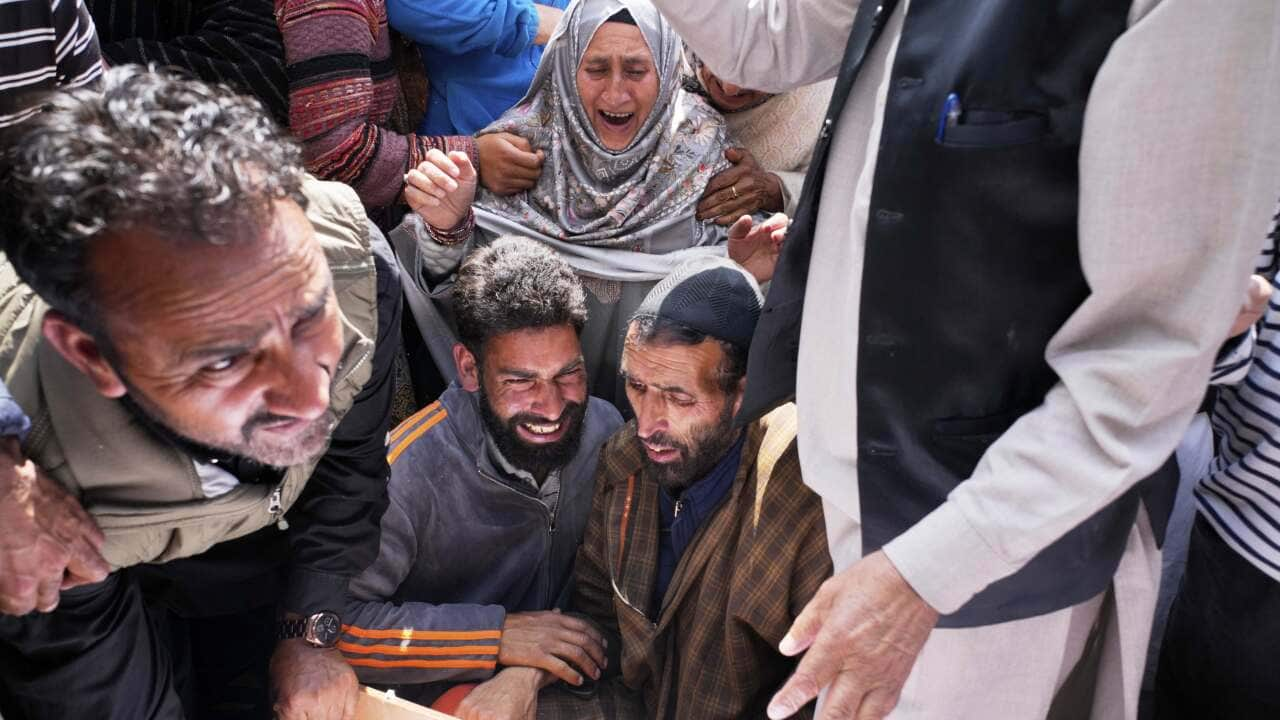India took a raft of punitive diplomatic measures against Pakistan on Wednesday, accusing it of supporting cross-border terrorism after a deadly attack by militants on civilians in Kashmir.
India's measures come a day after gunmen killed tourists in the Indian-administered part of the disputed territory. The gunmen killed 26 men — all Indian except one Nepali — in the deadliest attack on civilians in the Himalayan region for a quarter century.
Indian foreign secretary Vikram Misri told a media briefing the cross-border linkages of the attack had been "brought out" at a special meeting of the security cabinet, after which it was decided to act against Pakistani authorities.
He said India would suspend with immediate effect a crucial river water treaty that allows for sharing the waters of the Indus river system between the two countries.
The defence advisers in the Pakistani high commission in New Delhi were declared persona non grata and asked to leave, Misri said, adding the overall strength of the Indian high commission in Islamabad will be reduced to 30 from 55.
The main border crossing checkpost between the two countries will be closed with immediate effect, and Pakistani citizens will not be allowed to travel to India under special visas, Misri said.
Pakistan will make "a tit-for-tat response" to the Indian measures, Pakistani deputy prime minister Ishaq Dar said.
At least 17 people were also injured in the shooting that took place on Tuesday in the Baisaran valley in the Pahalgam area of the scenic Himalayan federal territory of Jammu and Kashmir.
It was the worst attack on civilians in India since the 2008 Mumbai shootings and shattered the relative calm in Kashmir, where tourism has boomed as an anti-India insurgency has waned in recent years.

People light candles for the massacre's victims during a protest in Srinagar, India. Source: AAP / Danish Showkat / Eyepix Group / Sipa USA
It expressed discontent that more than 85,000 "outsiders" had been settled in the region, spurring a "demographic change".
Indian security agencies say Kashmir Resistance, also known as the Resistance Front, is a front for Pakistan-based militant organisations such as Lashkar-e-Taiba and Hizbul Mujahideen.
Pakistan denies accusations that it supports militant violence in Kashmir and says it only provides moral, political and diplomatic support to the insurgency there.
Pakistani officials extended condolences to the victims' families.
"We are concerned at the loss of tourists' lives," Pakistan's foreign affairs ministry said in a statement while wishing the wounded a speedy recovery.
Indian Prime Minister Narendra Modi has pledged those responsible for the "heinous act" will be brought to justice.
"Their evil agenda will never succeed," Modi said shortly after the attack.
On Wednesday, Indian forces launched a manhunt for the assailants.
Tens of thousands of police and soldiers fanned out across the region and erected additional checkpoints.
They searched cars, used helicopters to search forested mountains, and in some areas summoned former militants to police stations for questioning, reports said.
Many shops and businesses in Kashmir closed to protest the killings. Following the attack, some tourists started to leave Kashmir.


